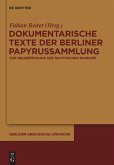Guards (Greek Phylakes) were common in antiquity and can be understood as forerunners of modern police men, and till nowadays guard duties are part of police activities. In all times endangered persons, buildings or properties as well as precious goods or funds needed protection, which was provided by different kinds of guards. In Graeco-roman Egypt with its deep agrarian character Phylakes were a widespread institution and left their traces in the numerous papyri of this time. The present study systematically analyses all testimonies beginning with the rule of the Ptolemies until the fourth century A.D. and draws a picture of the development of this security service, which - after having been predominantly privately organized in the ptolemaic era - was enlarged by the Romans and integrated into the compulsory public service as the lowest level of the public police service. Additionally a special tax was introduced, the Phylakon-tax, whose numerous receipts for payment demonstrate, by which means the government drew the population to the financing of the public security service.
Die in der Antike häufig bezeugten Wächter (griechisch Phylakes) lassen sich als Vorläufer moderner Polizeibeamter ansehen, und damals wie heute sind Wachdienste eine Grundform polizeilichen Tätigwerdens. Zu allen Zeiten bedurften gefährdete Personen, Gebäude oder Grundstücke sowie wertvolle Güter oder Gelder der Bewachung, die durch verschiedenste Kategorien von Wächtern ausgeübt wurde. Auch im landwirtschaftlich geprägten Ägypten in griechischer und römischer Zeit waren Phylakes allenthalben im Einsatz und haben daher auch in den zahlreichen Papyrusurkunden dieser Zeit ihre Spuren hinterlassen. Die vorliegende Studie wertet systematisch die Belege vom Beginn der Ptolemäerherrschaft bis ins 4. Jahrhundert n. Chr. aus und zeichnet ein Bild dieses in ptolemäischer Zeit überwiegend privat organisierten Sicherheitswesens, in das die Bevölkerung durch ein belastendes Liturgiesystem integriert wurde. Ergänzend wurde eine eigene Abgabe eingeführt, die Phylakon-Steuer, deren zahlreiche Zeugnisse veranschaulichen, wie der Staat die Bevölkerung auch zur Finanzierung herangezogen hat. Daneben waren in römischer Zeit Phylakes auch weiterhin in privatem Auftrag tätig.
Die in der Antike häufig bezeugten Wächter (griechisch Phylakes) lassen sich als Vorläufer moderner Polizeibeamter ansehen, und damals wie heute sind Wachdienste eine Grundform polizeilichen Tätigwerdens. Zu allen Zeiten bedurften gefährdete Personen, Gebäude oder Grundstücke sowie wertvolle Güter oder Gelder der Bewachung, die durch verschiedenste Kategorien von Wächtern ausgeübt wurde. Auch im landwirtschaftlich geprägten Ägypten in griechischer und römischer Zeit waren Phylakes allenthalben im Einsatz und haben daher auch in den zahlreichen Papyrusurkunden dieser Zeit ihre Spuren hinterlassen. Die vorliegende Studie wertet systematisch die Belege vom Beginn der Ptolemäerherrschaft bis ins 4. Jahrhundert n. Chr. aus und zeichnet ein Bild dieses in ptolemäischer Zeit überwiegend privat organisierten Sicherheitswesens, in das die Bevölkerung durch ein belastendes Liturgiesystem integriert wurde. Ergänzend wurde eine eigene Abgabe eingeführt, die Phylakon-Steuer, deren zahlreiche Zeugnisse veranschaulichen, wie der Staat die Bevölkerung auch zur Finanzierung herangezogen hat. Daneben waren in römischer Zeit Phylakes auch weiterhin in privatem Auftrag tätig.








